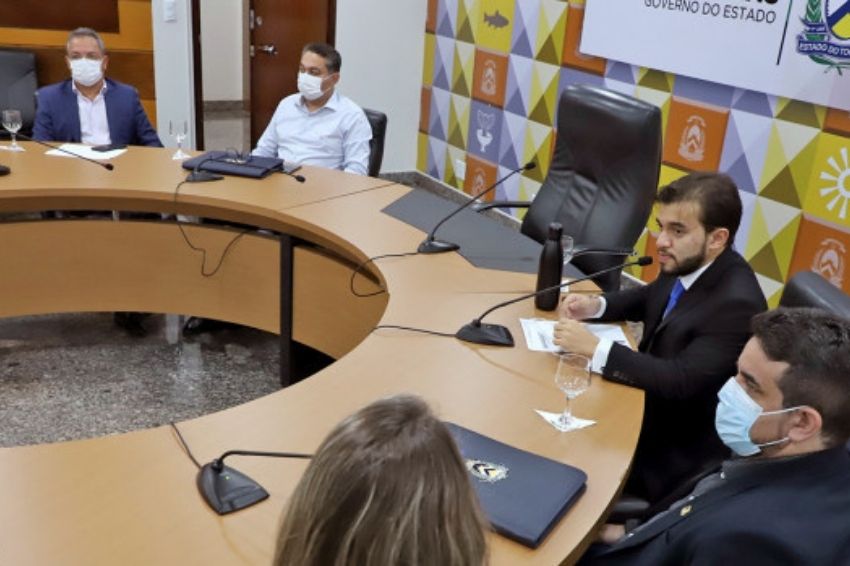O government of Tocantins received the results of the technical and feasibility study of changing part of the energy matrix of public bodies to clean energy.
The research provides details for the implementation of a PPP (Public-Private Partnership) for the implementation, operation and management of mini solar energy plants – which will subsequently open tenders for companies in the region to operate the service.
“Projects that contribute to savings in public spending and that also bring benefits to the environment must be developed quickly in our management”, said Wanderlei Barbosa, governor of the state of Tocantins.
The work of technicians from IPGC (Institute of City Management Planning), responsible for the report, consisted of carrying out all the engineering research to analyze what the state consumes, what the emission of solar rays is, economic studies to guarantee gains and also attract the private sector.
After following the procedures until the signing of the contract, only in 2022, the program predicts that Tocantins can receive R$ 157 million in investments from the private sector. The entire contribution from the concessionaires is amortized over the course of the contract, so there is no public investment in the implementation, operation and management of the mini-plants.
“We are dealing with an infrastructure project without expenditure from the state Treasury and which will bring unprecedented economic, social and environmental gains in the state”, highlighted José Humberto Pereira, Secretary of Partnerships and Investments.
How will the project take place?
The study was based on a Technical Cooperation Agreement between Tocantins Parcerias and IPGC. As it is a cooperation term, there is no cost to the state, as explained by Aleandro Lacerda, president of Tocantins Parcerias.
“The Cooperation Agreement is a joint effort with the institute. When you bid for the concession, the contract provides that the company that will install the photovoltaic plants will reimburse the entire study, which is governed by the Concession Law and which has a limit”, he reported.
“Within this limit, reimbursement is stipulated not only for IPGC but also for Tocantins Parcerias, considering that we are a mixed economy company where we provide resources and technical personnel to monitor this process”, he added.
O Piauí It was the first state in Brazil to develop, with IPGC, a project similar to this one, which is already in the final phase of construction, in addition to city halls in other Brazilian cities.
According to Leonardo Santos, CEO of IPGC, there will be 100% of investment from the private sector, without the need for any financial contribution from the government for the implementation and operation of the plants.
Furthermore, he emphasized that throughout the 25-year term of the contract with the eventual company that wins the bid, Tocantins will achieve estimated savings of R$ 1 billion, considering the historical series of tariff adjustments and projected inflation.
“Tocantins begins to remunerate the partner at a value lower than the traditional energy he is consuming. This is already a saving and, over the years, he stops paying the Aneel (National Electric Energy Agency) adjustment”, he highlighted.
“It's as if I were generating my own energy and, regardless of the increase in electricity or the flag I have, I am not linked to this increase, because I compensate 1 kW generated for 1 consumed”, he clarified.
Therefore, Santos concluded that, adding this gain, over the 25 years plus the plant, which at the end of the contract reverts to the state, it is expected to save more than R$ 1 billion just by joining this project without the need to make public investment.
In addition to the economy, the IPCG highlighted that there is a huge environmental gain. With the change in the energy matrix, Tocantins will have reduced carbon emissions into the atmosphere by more than two tons per year, the equivalent of carbon dioxide absorbed annually by 130 thousand trees, “which will guarantee green certifications and indirect gains for the state, such as prizes international and special lines of credit”.















